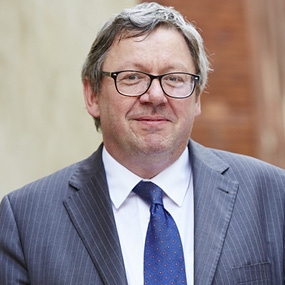Winter is coming - how to prepare while managing a global pandemic

Chief Executive Officer, Academy of Medical Royal Colleges
The Academy of Medical Royal Colleges last week published a statement entitled Preparing for COVID-19 surges and winter.
As a document it does very much what it says on the tin, but what does that mean for anaesthetists or intensive care staff?
As with all Academy documents, it seeks to look at issues from a cross-specialty perspective. That is our role. It is the College or FICM’s responsibility to give that specialty specific interpretation and there will, of course, be aspects of preparing for a COVID surge and winter that will be particular to anaesthetists or intensive care staff. However, there are many issues that apply across specialties and across staff groups – sometimes there are actually more of these than people will first admit – “It’s entirely different in my specialty…” is not always entirely the case!
So why are we doing this and what are we saying?
Why now?
Despite what parts of the media and possibly parts of Government would have us believe, most clinicians know that COVID-19 is not beaten and has not disappeared.
Obviously, the first wave has receded, and the NHS and its staff coped amazingly well albeit at considerable personal cost and effort. But we know that we cannot be complacent and many of circumstances are lining up to take things in the wrong rather than the right direction.
We do not know what impact the easing of lockdown measures is going to have or what the impact of the return of schools and universities is going to be. There could be a large resurgence of the pandemic either nationally or, more possibly, with local or regional outbreaks.
And crucially, we are heading towards winter not towards the spring and summer as was the case in March. That means we will be facing the usual seasonal flu outbreak.
We don’t know how severe that will be and don’t really know how it will interact with COVID. But we do know it will mean there is likely to be less capacity for managing COVID patients in terms of staff, beds and space.
We also know that the NHS will be dealing with the extensive backlog of non-COVID patient care that has built up during the pandemic. This will also impact the availability of staff and space capacity.
However, we do have a huge advantage over where we were in March. We have been through COVID and we know what happened. We know what went well and what did not go well – and there were a number of things in both those boxes.
What we can do – and what we must do – is look at what we did and learn the lessons. This is not simply to point fingers and blame although we believe it is essential there is in time a public inquiry which does look in detail at the decision-making process. But it is so we can prepare effectively and successfully.
Frankly, being able to draw on the lessons from over the last six months, it would be unforgivable if we did not prepare fully and effectively at national, regional and local level.
So what needs to happen?
Our paper sets out clearly the range of actions Medical Royal Colleges need to undertake to prepare their specialties, so I won’t spell them out here. But I will summarise the themes. We have divided required action into what needs to be done locally i.e. within a trust or employer, regionally and nationally. These relate to:
- system capacity – what is the volume of work that can be handled safely? Which services would continue, and which cease in the event of a surge? What is the capacity in neighbouring providers, including the private sector?
- workforce requirements – is there a workforce strategy that covers numbers and types of staff required, completion of staff risk assessments, arrangements for training and trainees?
- infection control and PPE – is the environment safely configured for proper infection control? Are there sufficient stocks of PPE in both local organisations and nationally?
- testing – is there a clear strategy locally and nationally on testing of patients, the public and staff? Does the test and trace system work?
- communications – are there local communication plans? Are the national communications messages co-ordinated across the four nations and across Government agencies?
- care homes and social care – can we be confident the problems in care homes will not be repeated? Is there a clear testing policy?
Do please read the whole document to see everything we are proposing.
So what are we doing with this?
I see two purposes for this document. It has been sent to the Chief Medical Officers of the four nations and Steve Powis, NHSE/I’s National Medical Director. I am pleased that the document has already been well received.
Secondly, I would like you as RCoA members on the ground to use the document in your workplaces. Essentially it can be a checklist for clinicians to use in their local organisations to ensure that the right preparations are underway. Are there plans to support remote working? Are your IPC arrangements clear and understood by everyone? Have diagnostic bottlenecks been removed etc?
Medical Royal Colleges and the Academy can raise issues nationally and we will. But as anaesthetists and intensivists, you have to ability to ensure that issues are raised properly, and the right actions are taken in every NHS organisation.
If together we do this, I believe that we will be in a position to manage whatever does happen this winter effectively to the benefit of patients and staff alike.
Alastair Henderson
